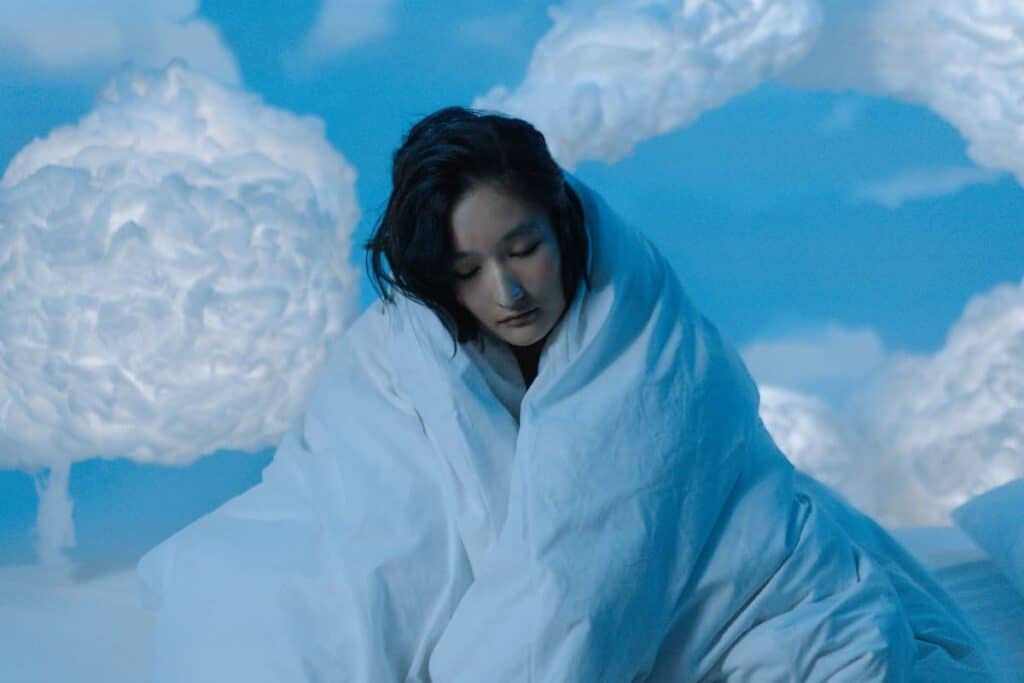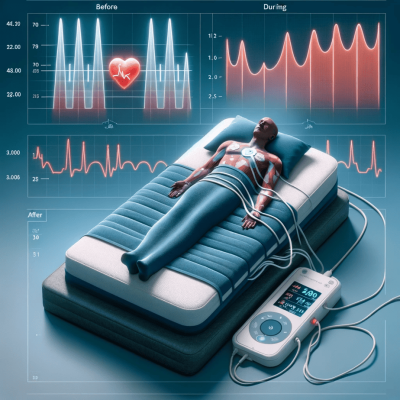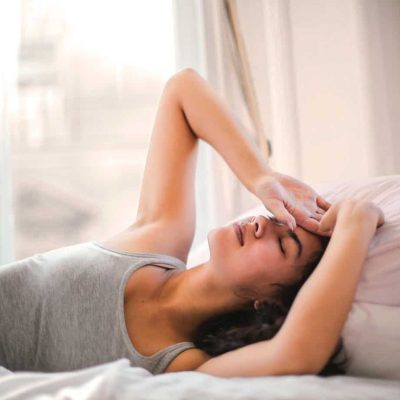In today?s health news, according to a study, Lewy body dementia (LBD) can manifest symptoms years before it is identified, particularly when a person is sleeping. Researchers have found that compared to other times of the year, humans require more sleep overall and more deep sleep during the winter. Long-term sleep deprivation has health hazards, and experts have examined the fundamental need of sleep for memory.
Table of Contents
ToggleSleep May Predict Dementia 10 Years Before Diagnosis
Original Source: Sleep Can Possibly Warn Dementia Patients 10 Years Before Diagnosis
One of the most prevalent forms of dementia is Lewy body dementia (LBD). According to the NHS, accumulated Lewy bodies?an aberrant protein found in brain cells?are the cause of LBD. These proteins can accumulate in the brain and impede the growth of muscles and memory.
According to a study, LBD can manifest symptoms for years before it is identified, particularly when a person is sleeping. In their 2013 publication, Mayo Clinic researchers identified a link between LBD and REM sleep disturbance.
“Although it is true that not everyone with this sleep disturbance goes on to acquire dementia with Lewy bodies, up to 75 to 80 percent of the men in our Mayo database who had dementia with Lewy bodies also had REM sleep behavior disorder. Thus, it is a highly potent illness marker “said Melissa Murray, Ph.D., the study’s principal investigator and a neuroscientist at the Mayo Clinic in Florida.
The researchers came to the following conclusion: “If a man plays out his dreams while sleeping is the strongest indicator of whether he is developing LBD.”
Additionally, they stated that if these symptoms exist, “patients are five times more likely” to experience LBD.
The Mayo Clinic discovered in a 2023 study that patients were curious about their prognosis for REM sleep disorder and wanted to learn about treatment and prevention.
What’s REM sleep disorder?
After our non-REM sleep, which typically occurs when we are dreaming, comes REM sleep. REM sleep, when our brain is most active, is essential for maintaining brain health. Healthy memory and cognitive performance, as well as emotional mindset and creativity, have all been related to REM sleep.
A type of sleep disturbance called rapid eye movement (REM) sleep disorder causes you to have a lot of vivid, usually disturbing nightmares with lively sounds and quick movements in your arm and leg.
Almost 20% of our sleep time is spent in REM sleep, which normally occurs in the second part of sleep. It is typically not normal to move around frequently when sleeping. REM sleep behavior disorder often develops gradually and may worsen over time. Multiple system atrophy and neurological disorders like Parkinson’s disease are frequently connected to this.
Hallucinations, confusion, cognitive decline, and sluggishness are a few signs of Lewy body dementia. One’s regular life and routine activities may be hampered by this. Lewy body dementia has no known cause or treatment, however there are drugs and therapies including occupational and psychological therapy that can help with lingering symptoms.
How can we sleep in REM more often?
There are numerous actions you may do to increase your REM sleep and preserve a healthy brain function, including:
- Maintaining a regular sleep schedule
- Increasing solar exposure and controlling circadian rhythm
- Regular exercise
- Avoid drinking and tobacco use
- Avoid consuming caffeine at night
Seasonal Sleeping: Winter Needs More Rest
Original source: Seasonal Sleeping: Why We Need More Rest in the Winter
We’re solar creatures in many ways.
Today’s Frontiers in Neuroscience study found that humans have longer REM sleep in winter than summer, even in artificially lighted urban environments, and less deep sleep in autumn.
The sun sets our body clocks, and shifting day length and light exposure over the year can affect sleep duration and quality, according to Charit? Medical University of Berlin researchers.
The study’s author, Dr. Dieter Kunz, a clinical psychiatrist, sleep researcher, and clinical chronobiologist at the Clinic of Sleep & Chronomedicine at St. Hedwig Hospital, Berlin, said, “Possibly one of the most precious achievements in human evolution is an almost invisibility of seasonality on the behavioral level.”
Kunz stated, ?In our work, we reveal that human sleep architecture varies dramatically throughout seasons in an adult population living in an urban environment.?
How human sleep was studied
292 persons with sleep issues were recruited for polysomnographies by the research team.
Participants were asked to sleep naturally without an alarm in a lab where their quality, type, and length of sleep could be recorded.
The study settings allow for a big group to be uniformly scattered throughout the year to better highlight month-to-month changes, however sleep disorders could alter the results.
The study eliminated participants taking sleep drugs, polysomnography technical problems, and REM sleep latency longer than 120 minutes, which indicated that the initial REM sleep episode had been omitted.
188 subjects remained after exclusions. Insomnia was detected more often at year’s end.
Exploring seasonal sleeping
Researchers detected ?subtle but dramatic variations across the seasons? despite respondents living in an urban area with limited natural light exposure and high light pollution, which should affect light-regulated seasonality.
Winter sleep time was about one hour longer than summer sleep time, but the researchers claimed that wasn’t statistically significant.
Nonetheless, winter participants had 30 more minutes of REM sleep than summer participants. The circadian clock, which is regulated by light, controls REM sleep.
The scientists recognized that the results need to be validated in a healthy population, but they claimed seasonal fluctuations could be considerably higher.
The researchers said that while most people’s waking time is out of their control due to school or work schedules, society could benefit from modifications that help people adapt to the seasons.
They suggested going to bed early in winter to accommodate human seasonality till then.
?Seasonality is widespread in any living organism on our planet,? Kunz remarked. ?Over the winter, human physiology is down-regulated, with a feeling of ?running-on-empty’ around February or March. ?In general, society need to change sleep patterns including length and timing to season or adjust school and working schedules to seasonal sleep needs.?
Sleep and brightness
Astronauts’ sleep cycles were researched by retired NASA engineer Robert Soler. He co-founded BIOS Lighting.
Soler told Healthline that our bodies’ light is affected by both sunlight and the sort of light we receive.
Soler stated, ?The sun cycles through sunrise, midday, sunset, and nighttime light, which all have various hues that our body interprets as stimulus for different energy levels and activities.? ?Bluer light in the early, like a morning sky, gives you energy and helps you get up. Daylight with cooler tones signals your body to be attentive and productive. Then the sunset’s amber tones prepare you for sleep.?
Soler remarked that winter has more nighttime and a condensed solar cycle. Due to less daylight light and darkness, we desire to sleep more and are less awake.
It’s more than city versus country light. It’s also about location.
Soler said, ?If your city is closer to the equator, your winters may be slightly lighter than others, therefore it’s possible your sleep routine may not vary much.? Your circadian rhythm may be affected by light pollution.
Why sleep counts
Soler said that how we sleep matters more than most people realize.
He stated, ?We all understand that we need sleep to function and be productive, but there are so many more intricacies to it.? ?Our circadian cycles affect our alertness, productivity, and sleep patterns. Your daily life and health may suffer if you don’t get enough sleep. Sleep affects metabolic, cardiovascular, and mental health.
Jamie Evan Bichelman, a clinical psychologist, has survived serious depression and seasonal affective disorder all his life (SAD).
Poor winter sleep ?traps us in a vicious loop of requiring more sleep to compensate for the lack of quality slumber the night before,? Bichelman told Healthline.
Bichelman added, ?The generation of melatonin is out of whack as we take in less natural sunlight, so upsetting the body’s normal processes that keep our sleep cycles stable.? ?Many people with seasonal sadness use artificial light-making ?SAD lamps’ to varied degrees.?
Too many artificial lighting firms make bogus claims, Bichelman said.
?The market (is) being swamped with lamps with misleading claims, all in the name of marketing,? Bichelman added. ?Medically evaluated evidence does imply that SAD lights can aid in regulating our body’s internal processes, regrettably, many people fall victim to cheaply-made knock-offs.?
Bichelman stated colder climates also affect.
Bichelman added, ?(Those) who must run the heat all winter long to live comfortably, the extra heat and diminishing moisture in the air lead to poor quality sleep, as we know from study that bodies require a certain degree of cold to more comfortably sleep.?
He claimed bad sleep affects food choices, which affect sleep.
?As poor sleep mounts up, we’re more tempted to make less nutritious selections and gravitate to food that is rapidly cooked and often less nutrient-dense,? Bichelman told Healthline. ?The difficulty here is that these kinds of foods, when taken with increasing frequency, likewise impair our quality of sleep and desire to sleep more often.?
Better sleep tips
Insomnia, apnea, and circadian rhythm disorders are Nicole Eichelberger’s specialties.
A regular sleep routine was one of Eichelberger’s sleep advice for Healthline.
She advised, ?Try to go to bed and wake up at the same hour, especially on weekends.?
Create a sleep-friendly environment.
Make sure your bedroom is cold, dark, and quiet. ?Use comfy bedding and a supportive mattress,? Eichelberger said.
Before bed, avoid screens.
She claimed electronic devices’ blue light suppresses melatonin production, making it tougher to fall asleep.
Avoid caffeine and alcohol.
?Both can disrupt your sleep and make it tougher to attain restorative sleep,? she said.
Practice relaxation.
?Meditation, deep breathing, or yoga can help you unwind and prepare for sleep,? Eichelberger said.
Sleep helps our bodies recover and consolidate memories and learning, she said.
?Obesity, diabetes, and cardiovascular disease have been related to chronic sleep deprivation,? she stated. On the other side, getting enough sleep improves mood, cognitive function, and immunity. In conclusion, healthy sleep is crucial for our well-being.?
Sleep deprivation has several negative effects
Original source: Lack of sleep will catch up to you in more ways than one
On Thursday at the Harvard T.H. Chan School of Public Health, CNN health reporter Jacqueline Howard spoke with Harvard, Columbia, Miami, and Massachusetts sleep experts about its health effects.
?Sleep is connected with mortality?cardiovascular disease, diabetes, mental health, brain health, immunological function, respiratory diseases, and cognitive function and performance,? said University of Miami Miller School of Medicine assistant professor Azizi Seixas.
He and other panelists discussed long-term sleep deprivation’s health hazards and memory’s importance. “When you sleep, you’re taking this video of your day and you’re putting it on replay, and it’s this fantastic mnemonic device,” says UMass psychology and brain science professor Rebecca Spencer. It solidifies our day’s memories.?
While rest is crucial, the world can get in the way. Panelists discussed noise pollution, racial sleep discrepancies, and how governmental decisions can make us exhausted and vulnerable.
?Marginalized populations and racial and ethnic minorities are more likely to dwell in neighborhoods with socioeconomic disadvantage,? said Columbia University School of Social Work associate professor Carmela Alc?ntara. ?That might include neighborhoods that would have higher policing, neighborhoods that then have greater exposure to noise, light, and all these elements that we know impact short-term sleep and then can have these cascading long-term consequences on sleep.?
Better sleep?
Spencer advises “managing the controllables.” While you can’t decrease your neighbors’ volume or dim the streetlights, there are other ways to make a setting more restful. Example: ?exposing yourself to light throughout the day, particularly outside natural light, but then keeping your environment dark at night.? Move. Spencer replied, ?If nothing else, exercising can clear your mind.? ?That’s part of the rumination problem many individuals experience when trying to fall asleep.?
Harvard Medical School neurology professor Elizabeth Klerman advised against self-criticism if it fails. Instead, make up the sleep on a weekend or day off. Your body cooperates. Klerman denied oversleeping. ?Unlike chocolate cake, you can’t sleep when you’re not tired.?
Long-term sleep loss affects cognition and dementia risk.
If you regularly lose sleep, Seixas suggested changing other parts of your routine to minimize the impact. ?We’ve found distinct profiles and suggestions of people who may get six hours of sleep but can make certain modifications in their lives and habits to balance out their risk for cardio metabolic health conditions.?
The panelists agreed that policymakers should not adjust daylight saving time to aid their constituents. Lawmakers should prioritize sleep via later school start hours and sleep hygiene campaigns.
?Science, public policy, public education, advocacy?I think all of them are going to be crucial in attempting to address the daylight saving time issue as well as other things linked to structural and racial inequalities,? Klerman said. ?We need science and communication.?
Summary of today?s sleep health news
To sum it up, one of the most prevalent forms of dementia is Lewy body dementia (LBD). According to the NHS, accumulated Lewy bodies?an aberrant protein found in brain cells?are the cause of LBD. These proteins can accumulate in the brain and impede the growth of muscles and memory. According to a study, LBD can manifest symptoms for years before it is identified, particularly when a person is sleeping. The Mayo Clinic researchers found a link between LBD and REM sleep disorder.
Additionally, according to studies, people require more sleep overall and deep sleep during the winter than at other times of the year. Two of the factors are lower temperatures and less daylight during the day. One strategy for getting better sleep, according to experts, is to go to bed and wake up at the same time every day.
Lastly, sleep’s health effects were explained by Harvard, Columbia, Miami, and Massachusetts experts. UMass psychology and brain science professor Rebecca Spencer says, ?When you sleep, you’re taking this video of your day and you’re putting it on replay, and it’s this fantastic mnemonic device.? It cements our day’s recollections. She said there are ways to make an environment more restful even if you can’t decrease your neighbors’ loudness or dim the lighting. ?Exposing yourself to light during the day, particularly outside natural light, but then keeping your environment dark at night? is one example. Another method: moving. ?Exercising is something you can do, if nothing else, to clear your mind,? Spencer said. ?That’s part of the rumination problem a lot of folks experience attempting to fall asleep.?








